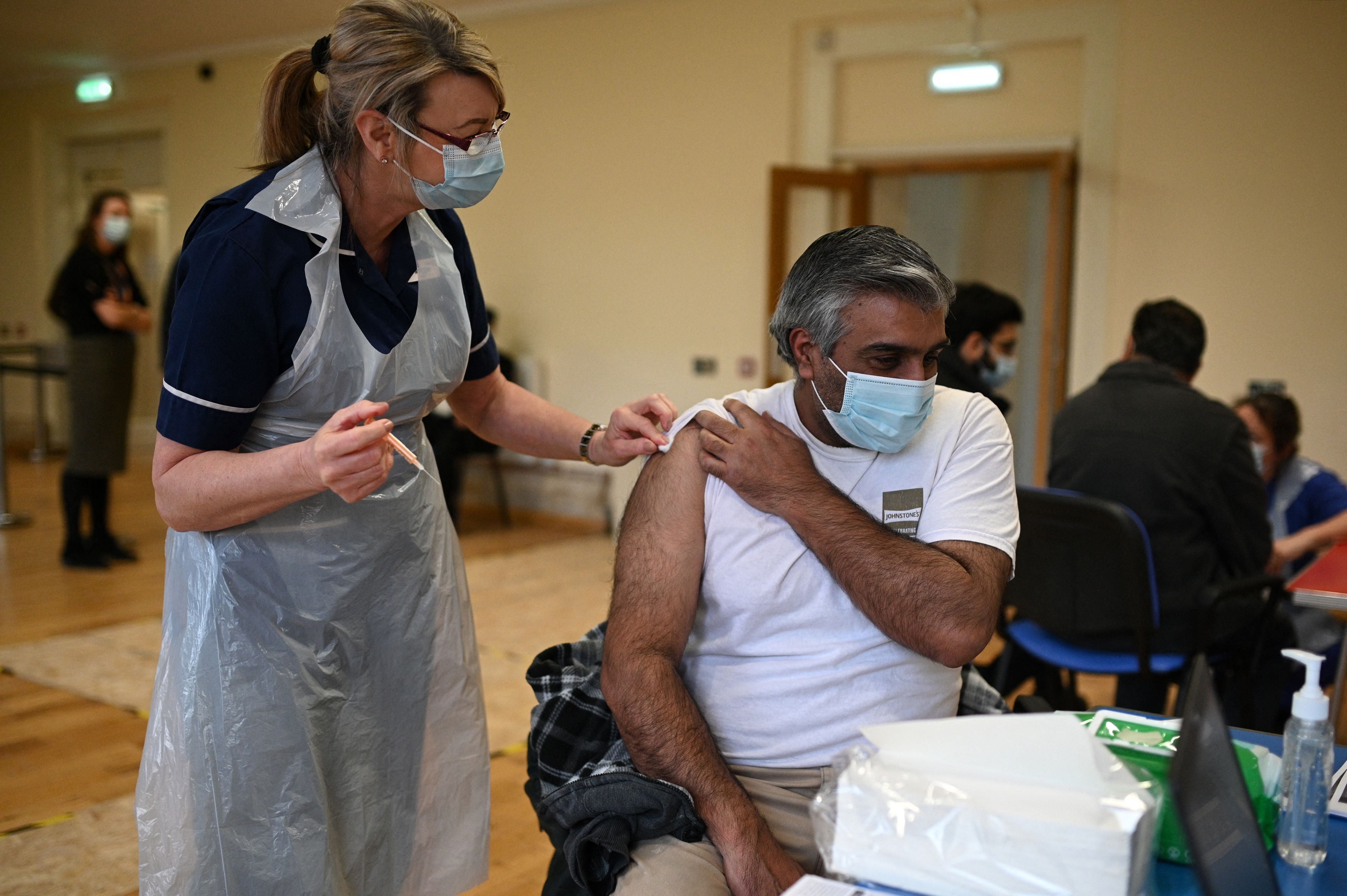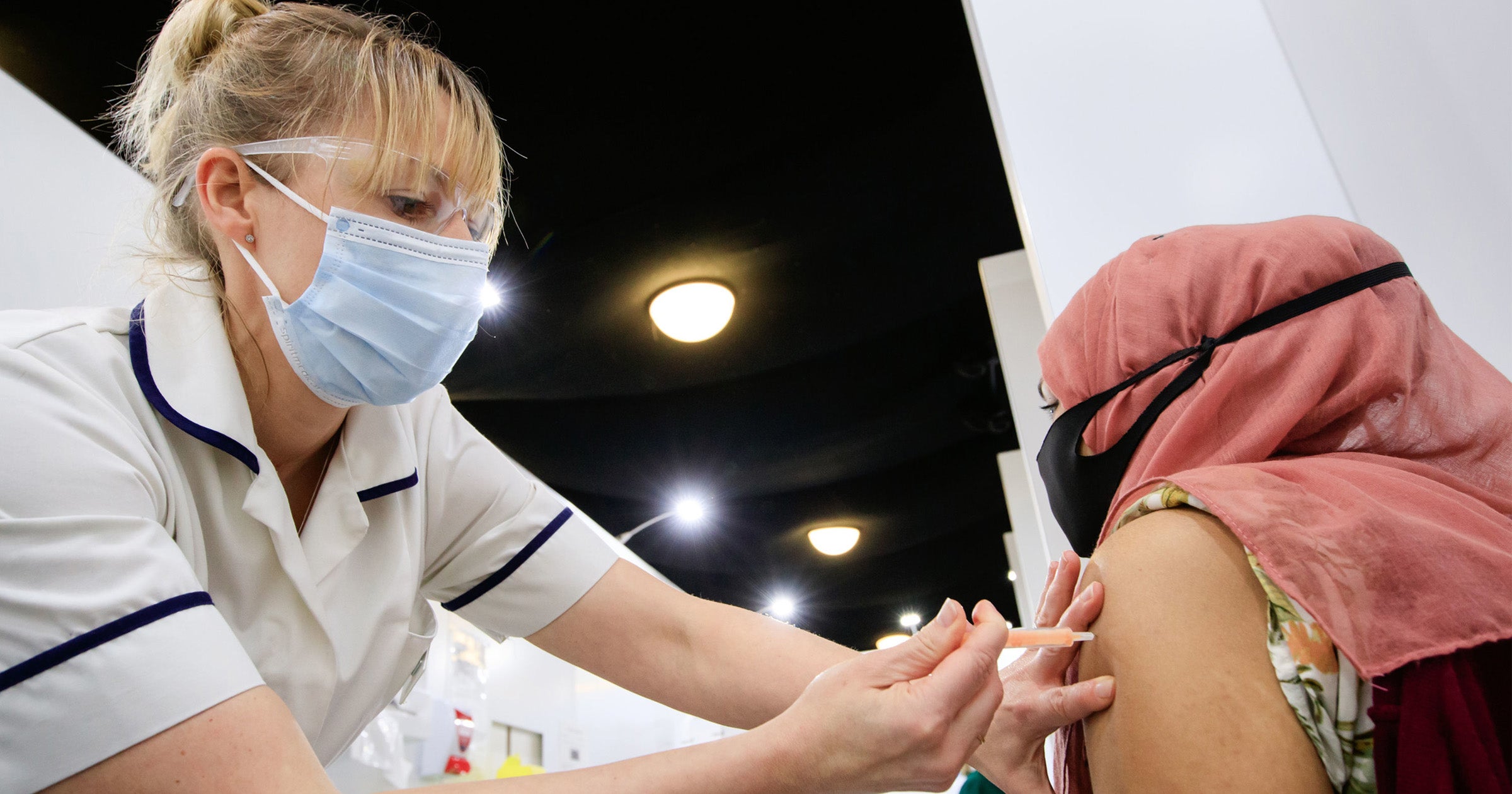Health of some UK ethnic minority groups equal to white people 20 years older, study finds
Researchers have warned disparities have persisted unchanged for 25 years, Thomas Kingsley reports


The health of some ethnic minority groups in the UK is equivalent to white people at least 20 years older, a new study has found.
Health inequalities become apparent in 30-year-olds and continue to widen with age, the research revealed.
People from Pakistani and Bangladeshi backgrounds experience the worst health of any ethnic group and have rates of poor health equivalent to white people 20 years older, the study said.
The research by the University of Sussex and the University of Manchester examined UK social survey data spanning over 20 years from 1993 to 2017. Analysis of health inequalities also found that rates of poor health among men and women from black Caribbean backgrounds are equivalent to those of White British people around 10 years older.
Twenty-two per cent of white British in their 80s report poor health, according to the report released this month, which is the same proportion for women from Pakistani backgrounds in their 50s (23 per cent). Similar findings were highlighted for people from Bangladeshi backgrounds where poor health of women in their 40s (14 per cent) is equivalent to that of white British women in their 70s (14 per cent).

The study, published in the journal Ageing and Society and co-authored by Dr Sarah Stopforth and Dr Laia Becares, found people from Pakistani backgrounds were twice as likely to report poor health than white people. For people from Bangladeshi backgrounds, the odds are 1.64 times higher, and for the Black Caribbean group, the chances of reporting poor health are 1.5 times higher than for white British people.
Researchers warned these health inequalities have persisted unchanged for over two decades, while campaigners called on the government to implement a national race equality strategy that addresses inequalities among older people and those approaching later life.
Dr Laia Becares, senior lecturer in Applied Social Science at the University of Sussex, said: “Racism impacts on health directly, through higher blood pressure and stress for example, but it also has indirect effects through social inequalities that reduce people’s life chances, by leading to poorer housing standards, lower pay, reduced employment opportunities, and other factors that damage health over people’s lives.
“Our research pools together all available data existent to study ethnic inequalities in health in later life in the UK. But there is a dearth of data to study ethnic minority older people, and so there is much more that can still be learnt about the lifecourse process that leads to ethnic inequalities in ageing.”
Aideen Young, senior evidence manager for campaign group Centre for Better Ageing, called the findings of the study “shocking” and urged the government to do more to address health inequalities in later life through improvements to ethnic minority data reporting and monitoring.
“It’s also depressing to see that these inequalities haven’t changed for the last 25 years. In the wake of the pandemic, we risk seeing them widen – so it’s vital that government makes tackling health inequality a priority in the recovery.”
On 1 October, the government launched the new Office for Health Improvement and Disparities with the aim of tackling health inequalities across the country and co-led by newly appointed deputy chief medical officer (DCMO), Dr Jeanelle de Gruchy.
A Department of Health and Social Care spokesperson said: “The pandemic has highlighted more than ever the importance of good health for all.
“The new Office for Health Improvement and Disparities is leading action to tackle health inequalities so everyone has the chance to live longer and healthier lives, whatever their background.”
Want us to report on an issue that matters to you? Contact us by clicking here






Join our commenting forum
Join thought-provoking conversations, follow other Independent readers and see their replies
Comments